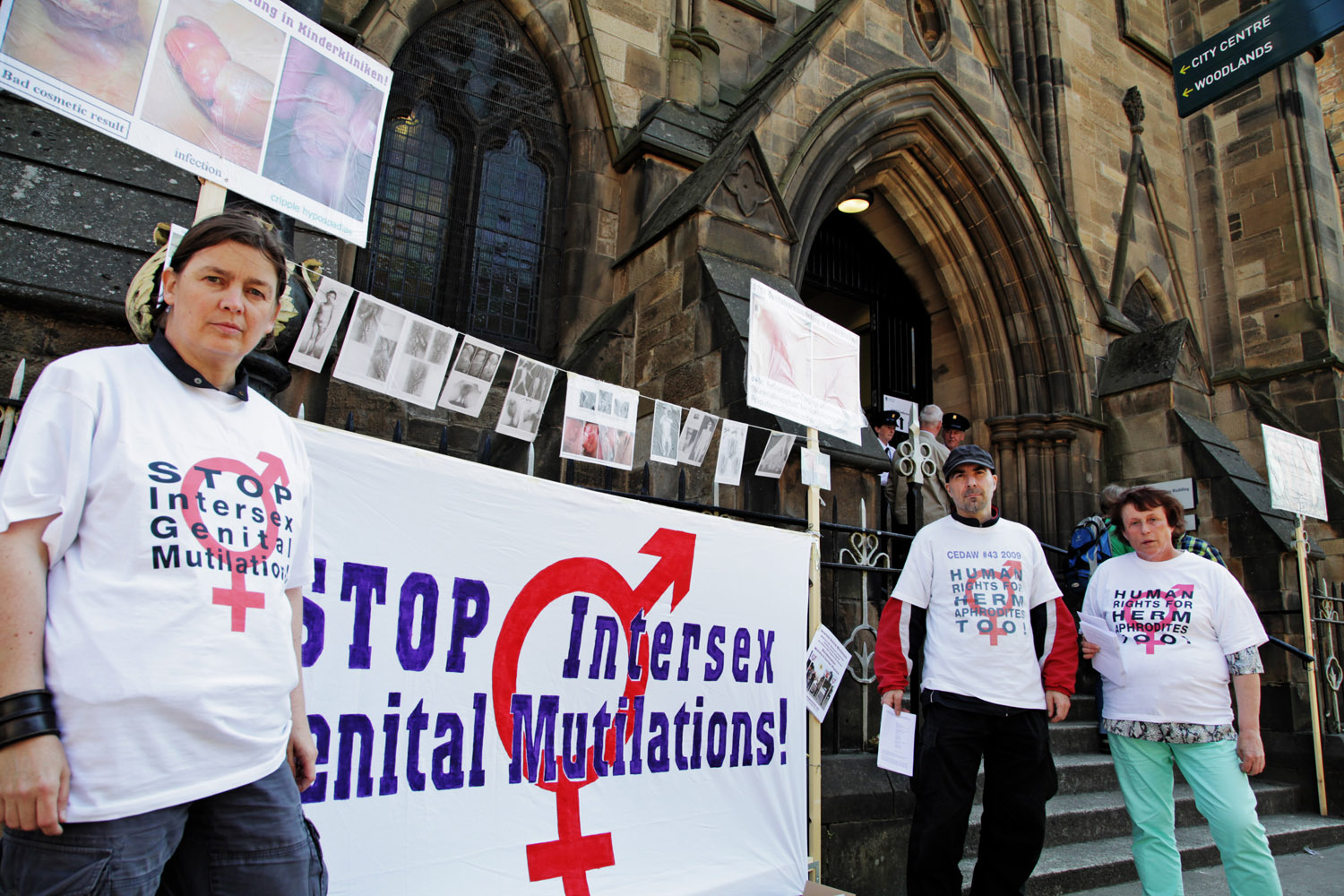An intersex individual is someone who is born with chromosomes, genitalia and/or secondary sexual characteristics that are inconsistent with the typical definition of a male or female body.
According to doctors at John Hopkins Hospital, which is where intersex surgeries were primarily developed, ambiguous genitalia themselves do not present any pain or harm to one’s health.
However, in our heteronormative society, being intersex is looked at as a problem that needs to be “fixed.” Many doctors feel there is a need to match one’s gender assignment with their genitals and will perform surgery in order to do so.
This presents many complications, as sometimes, patients are not told they are getting the surgery, such as in the case of intersex activist Arisleyda Dilone. Thinking she was being hospitalized regarding a tumor, she she was traumatized to learn that she was really having a full hysterectomy.
Gender surgery can have lasting affects in an intersex person’s life, such as having a hard time accepting the body the surgeons have left them with. They may also find it difficult to understand their bodies or get more information about the surgeries if their families and doctors never gave them any information to begin with.
I agree with the Intersex Society of North America, which advocates halting surgeries on infants with ambiguous genitalia unless there is a medical problem.
Doctors often suggest surgery as a solution to new parents, but, naturally, surgery is dangerous—especially for newborns—and it often has a number of negative side effects the patient will experience later on in life.
I think parents should not have a say in the matter, because it’s their child’s body. Immediately treating intersex infants as a psychosocial emergency is changing their body, as intersex activist
Cheryl Chase says, for the “convenience of others” without considering the child’s feelings about their own body.
There is a belief that intersex people have issues with their bodies and that the surgery eliminates these, thus helping them. However, no one can tell how people will feel about their intersex body just by looking at them when they are still an infant. Forcing surgery on a child causes more problems than it attempts to solve.
While there is not a lot of research on post-operation intersex individuals—most likely because they are often stigmatized and silenced—there are many activists fighting for much-needed change.
Not only would these changes help lives, but letting intersex people keep their bodies would also help change society. It looks outside our binary society of genders, sexualities and sex, which is always a great thing.



